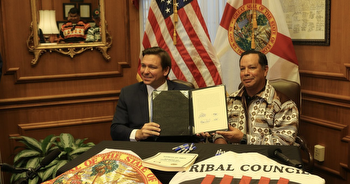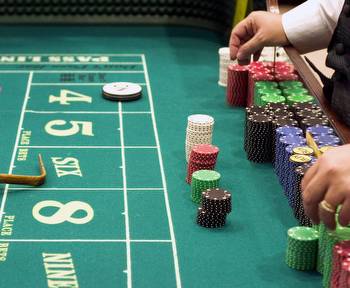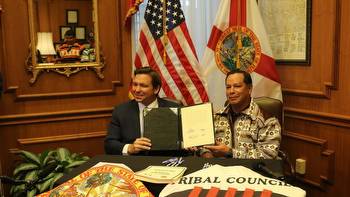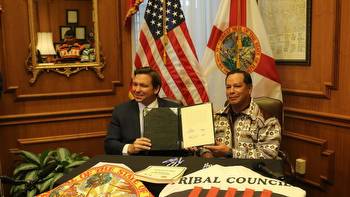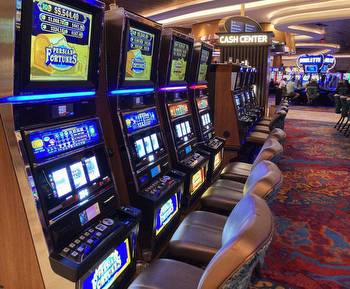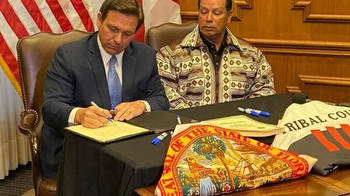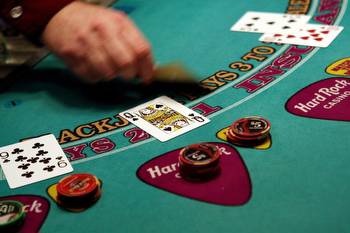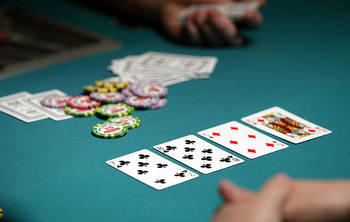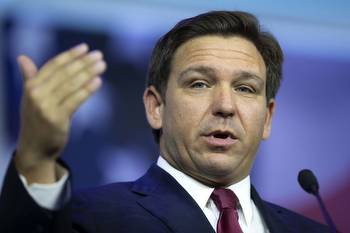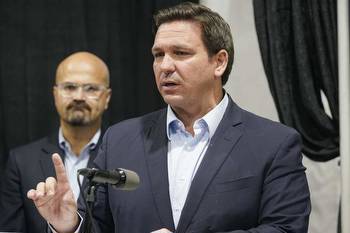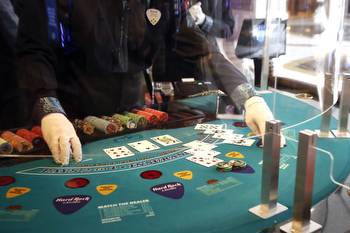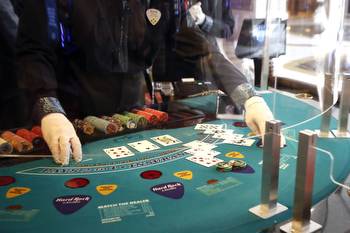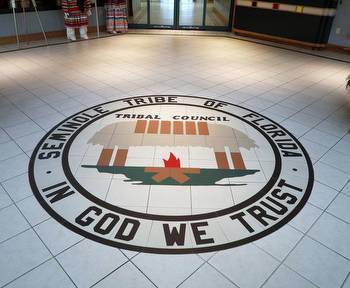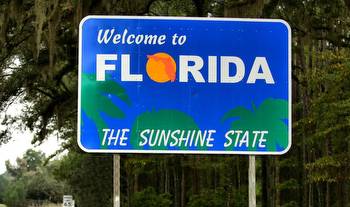Fate of Florida gambling deal unclear as Seminole Tribe makes case
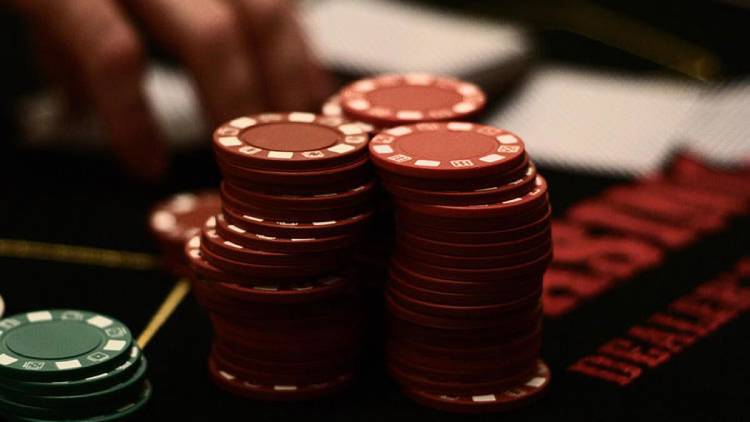
TALLAHASSEE --- The legality of sports betting in Florida remained uncertain Wednesday, as the Seminole Tribe escalated efforts to keep intact a deal giving it control over online sports wagering following a judge’s ruling that the agreement violates federal law.
The tribe’s latest legal salvos gave no indication of plans to comply with U.S. District Judge Dabney Friedrich’s Nov. 22 order vacating a deal signed this spring by Gov. Ron DeSantis and tribal Chairman Marcellus Osceola, Jr. and approved by the Legislature in a May special session. The U.S. Department of the Interior, which oversees Indian gambling, allowed the plan to move forward in August.
Friedrich’s ruling focused on part of the agreement, known as a gambling compact, that opened the door for the first time to sports betting in Florida. Under the deal, bettors anywhere in the state can place online wagers on sports events, with bets handled by computer servers on tribal lands.
Owners of Magic City Casino in Miami-Dade County and Bonita Springs Poker Room in Southwest Florida filed a lawsuit challenging the Department of the Interior’s tacit approval of the compact, arguing that the sports-betting plan is a “legal fiction” because federal law does not authorize bets that occur off tribal lands.
In last week’s ruling, Friedrich found the compact violated a federal law known as the Indian Gaming Regulatory Act, or IGRA. She scrapped the entire deal and rejected the Seminoles’ request to intervene in the lawsuit, which was filed against the Department of the Interior, and have it dismissed based on the tribe’s sovereign immunity.
After the ruling, the tribe has continued to allow people in Florida to place wagers on a sports-betting mobile app, which rolled out Nov. 1. The Seminoles on Nov. 25 filed an emergency motion requesting the U.S. Circuit Court of Appeals for the District of Columbia to stay Friedrich’s decision and has asked a three-judge panel of the court to rule on the motion by Friday.
The tribe has maintained that it should have been allowed to intervene in the lawsuit. In a court document filed Wednesday, the Seminoles’ lawyers said Friedrich’s ruling has had “an immediate chilling effect, with key vendors discontinuing their business with the tribe even as it seeks a stay.”
Under the 30-year compact, the Seminoles agreed to pay the state at least $2.5 billion over the first five years in exchange for controlling sports betting and being allowed to add craps and roulette to the tribe’s casino operations. The Seminoles’ motion for a stay said the tribe paid $37.5 million to the state in October and another $37.5 million in November.
“Without a stay, the tribe will suffer injury to its sovereignty, and hundreds of tribal and vendor jobs related to sports betting, craps, and roulette will be lost, hurting hundreds of Floridians and their families,” Wednesday’s 15-page brief said.
The Department of the Interior told the appeals court Tuesday that it did not oppose the Seminole’s emergency motion but disagreed with the tribe’s analysis. The federal agency said it has not decided whether to separately appeal Friedrich’s ruling.
But on Wednesday, the tribe ripped into the Biden administration’s defense of the compact, telling the court “whether the federal defendants adequately represent the tribe’s interests in this case is a serious legal question that warrants more deliberative investigation.”
During a two-hour hearing on Nov. 5, Friedrich spent the first 30 minutes wrangling with Rebecca Ross, a lawyer with the Justice Department’s Indian Resources Section, about the government’s unwillingness to take a position on the issue at the crux of the plaintiffs’ lawsuit: whether the sports-betting provision is in keeping with IGRA.
“It’s hard not to sit here and think that the government’s whole litigation strategy here is to delay this court from ruling,” Friedrich, who was appointed by former President Donald Trump, said near the end of the hearing.
The tribe pointed to Friedrich’s comments in Wednesday’s court filing.
The federal government’s “litigation strategy and arguments (or lack thereof) demonstrate at a practical level that they do not adequately represent the tribe,” the Seminoles’ lawyers wrote.
“Perhaps the starkest evidence is the district court’s significant and outward frustration with federal defendants’ litigation strategy. The district court said … that it was ‘confounded’ by federal defendants’ litigation position that they did not need to address the merits arguments,” they argued.
The tribe also accused the federal government of having “omitted significant legal arguments” the Seminoles would have briefed.
The tribe’s arguments contradict those made by the Interior Department in the court document filed Tuesday. The department argued that it “mounted a vigorous defense of the challenged agency action, including filing a motion to dismiss on various grounds not presented by the tribe and providing a supplemental brief on the merits.”
The pari-mutuel owners, meanwhile, have urged the court to reject the tribe’s attempt to block Friedrich’s ruling.
In a document filed Tuesday, lawyers for the plaintiffs accused the Seminoles of being “disingenuous with the court” over alleged “irreparable harm” that would warrant a stay on her decision.
“While telling the court that, absent an emergency stay, it ‘stands to lose’ tens of millions in revenue, it is telling its customers (over a week after the district court’s ruling) that its unlawful online sports gaming ‘remains fully open to all players’ and ‘there is no need to worry,’” the pari-mutuels’ lawyers argued.
But the Seminoles shot back on Wednesday, saying the compact --- which requires the tribe to contract with at least three Florida pari-mutuel operators on the sports-betting endeavor --- offers the only chance for the plaintiffs to participate in online sports betting. And the tribe disputed a contention that the pari-mutuels’ year-over-year revenue has declined in the weeks since the Seminoles’ sports-betting operations launched.
There “is no evidence that plaintiffs’ allegedly decreased revenues … are due to the tribe’s gaming operations,” the tribe’s lawyers wrote, adding, “They could very well be caused by other circumstances, such as resurgent COVID-19 concerns or inflation fears.”









